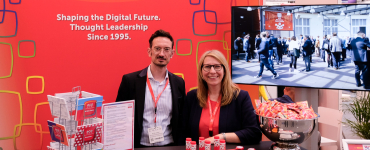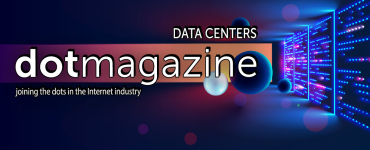What does a sustainable digital future look like? We spoke to Uwe Laudenklos, Lead Business Area Manager Northern & Central Europe at ABB in an interview on the topic of digitalisation and decarbonisation. As a “Digital Leader” he will appear at the (German-language) Data Center Expert Summit 2021. Operators, planners and customers of data centres and server rooms will meet at the trade fair congress to exchange information about current developments and new strategies for data centres.
Mr Laudenklos, what global sustainability trends do you expect in your industry in the post-COVID era?
At ABB, we believe that sustainability is an essential part of our corporate purpose and also adds value to our business. In mid-March, ABB published the German-language Sustainability Report 2020. In this report, we set out the impact of our activities on the environment and society, describe how ABB is contributing to more sustainable development and what our goals are for 2030. The topic of decarbonisation and thus also the topic of energy efficiency are embedded in our sustainability strategy. We have learned from the current situation that people and companies can adapt when they need to, and even in a conventional market we can innovate.
In which fields do you expect particular growth figures and where are companies currently staking their claims for the coming years?
If we take a look at global CO2 emissions, at ABB we estimate that around 46 percent of all emissions are coming from the generation of heat and electricity consumed in transport, industry – which from our perspective includes data centres – and buildings. These are the branches in which ABB has a historical strong presence. That is why we are constantly expanding our portfolio to include eco-efficient solutions in line with the needs in these fields.
How can the potential of technologies such as IoT, 5G or artificial intelligence be implemented in a meaningful and sustainable way?
In the future, we will see a strong interconnection of machines, sensors and plant components in industry. What began a few years ago as an Industry 4.0 scenario has now become the norm. The core of value creation in this IoT world is to convert the data and information gained into insights. 5G technology will play a crucial role in this: the high availability and robustness, together with the high data rates with extremely low latency times, results in the option of truly being a “game changer” for the use of wireless technologies in the industrial environment. Above all, targeted energy optimisation solutions and new service options offer great potential for making industrial processes – but also the future of our buildings and cities – more environmentally friendly and sustainable. Artificial intelligence methods are key technologies here. The goal is to combine purely data-driven approaches such as machine learning with domain know-how. In any case, the focus will be on people – this is the only way to achieve a high level of acceptance and thus sustainability. Data centres and edge computing solutions play a significant role in this.
Mr Laudenklos, thank you very much for the interview.




